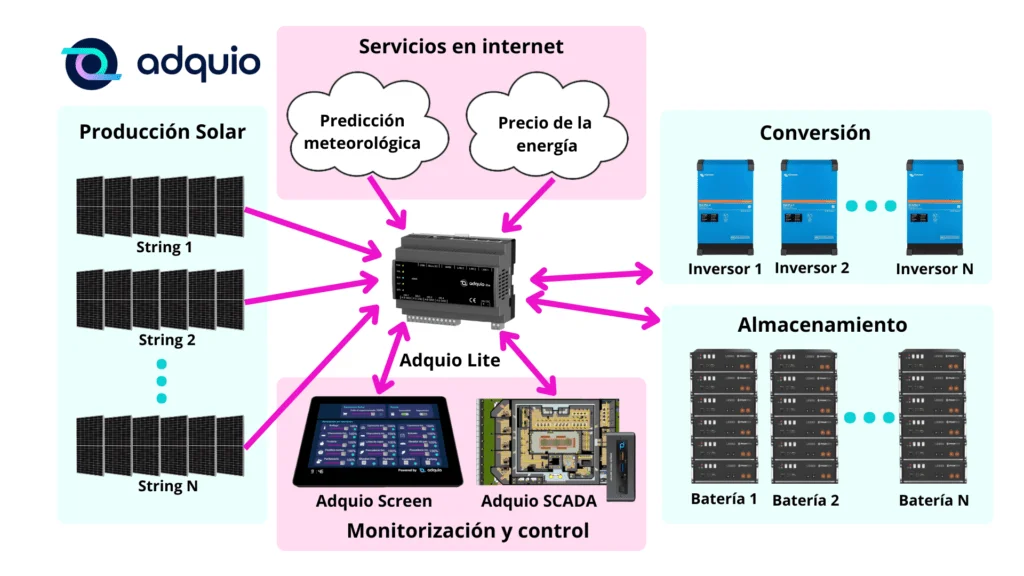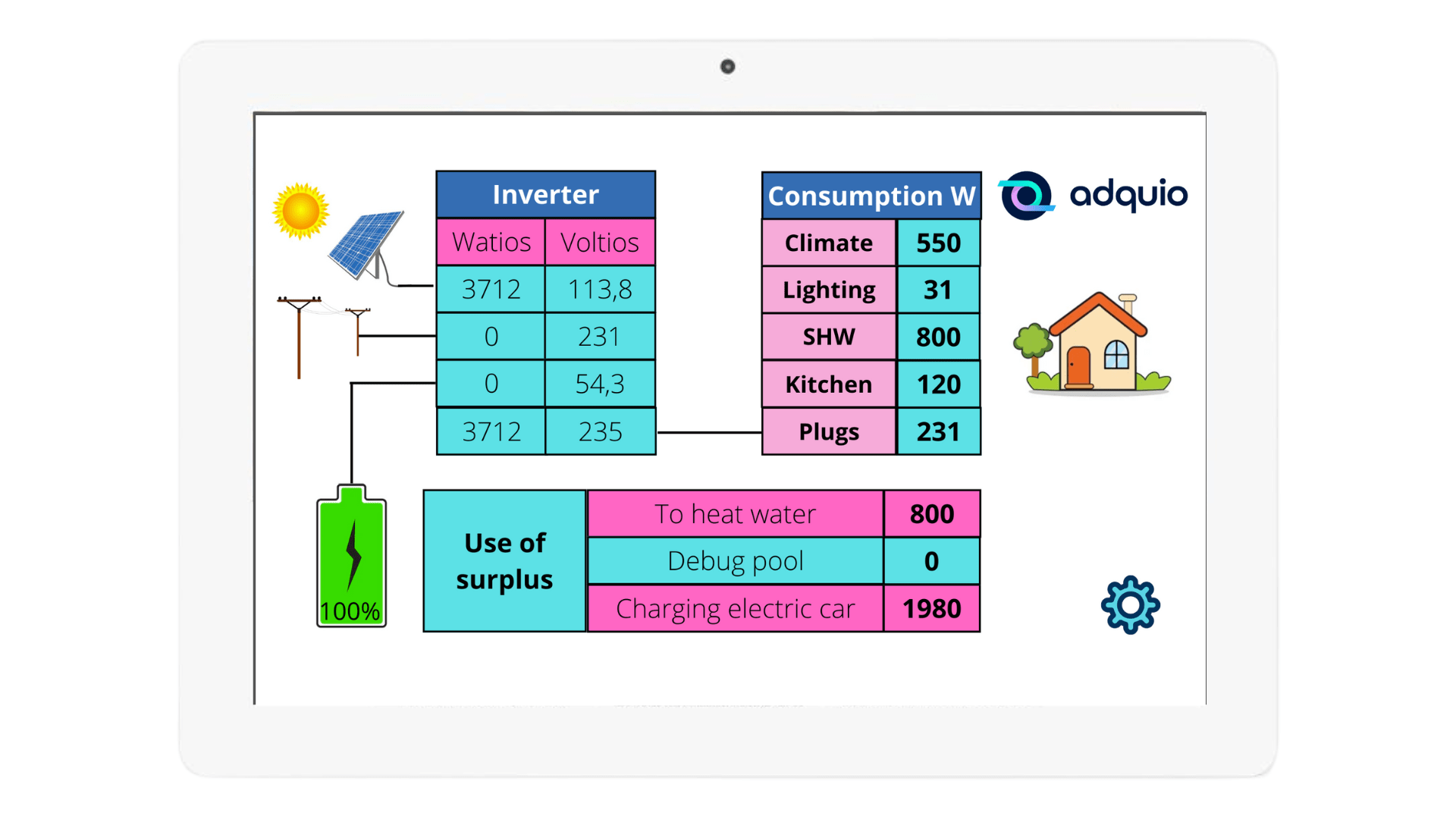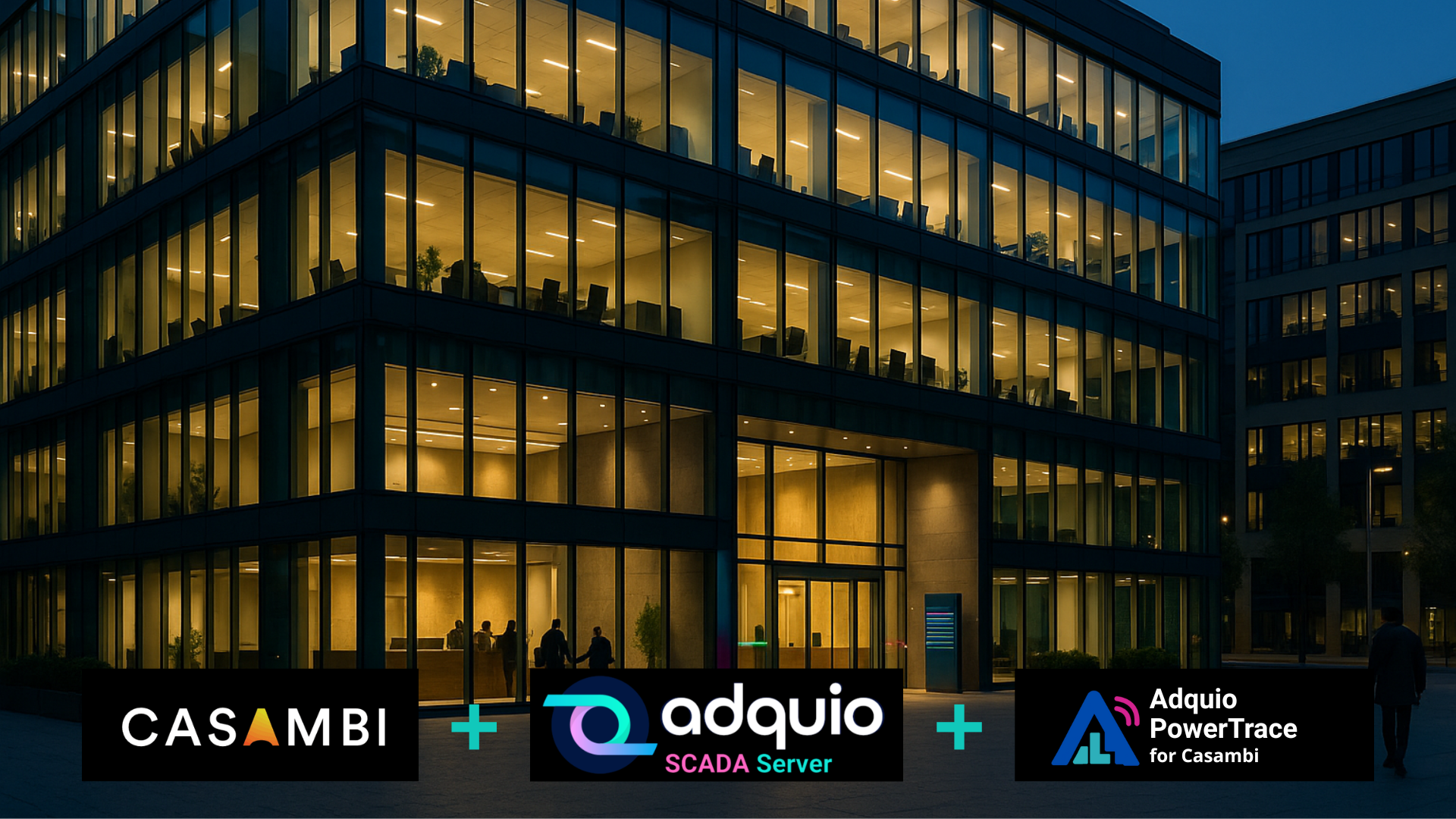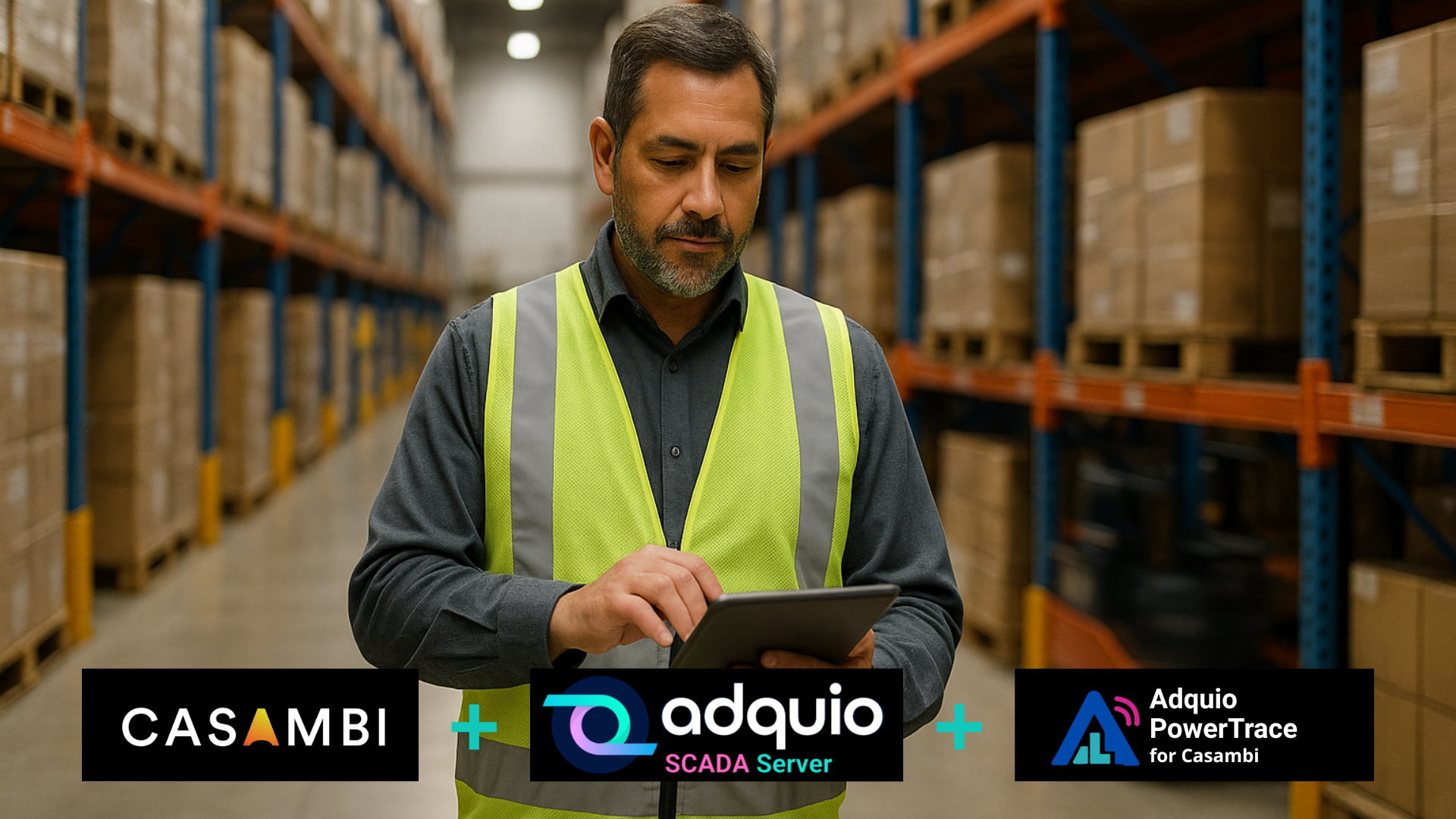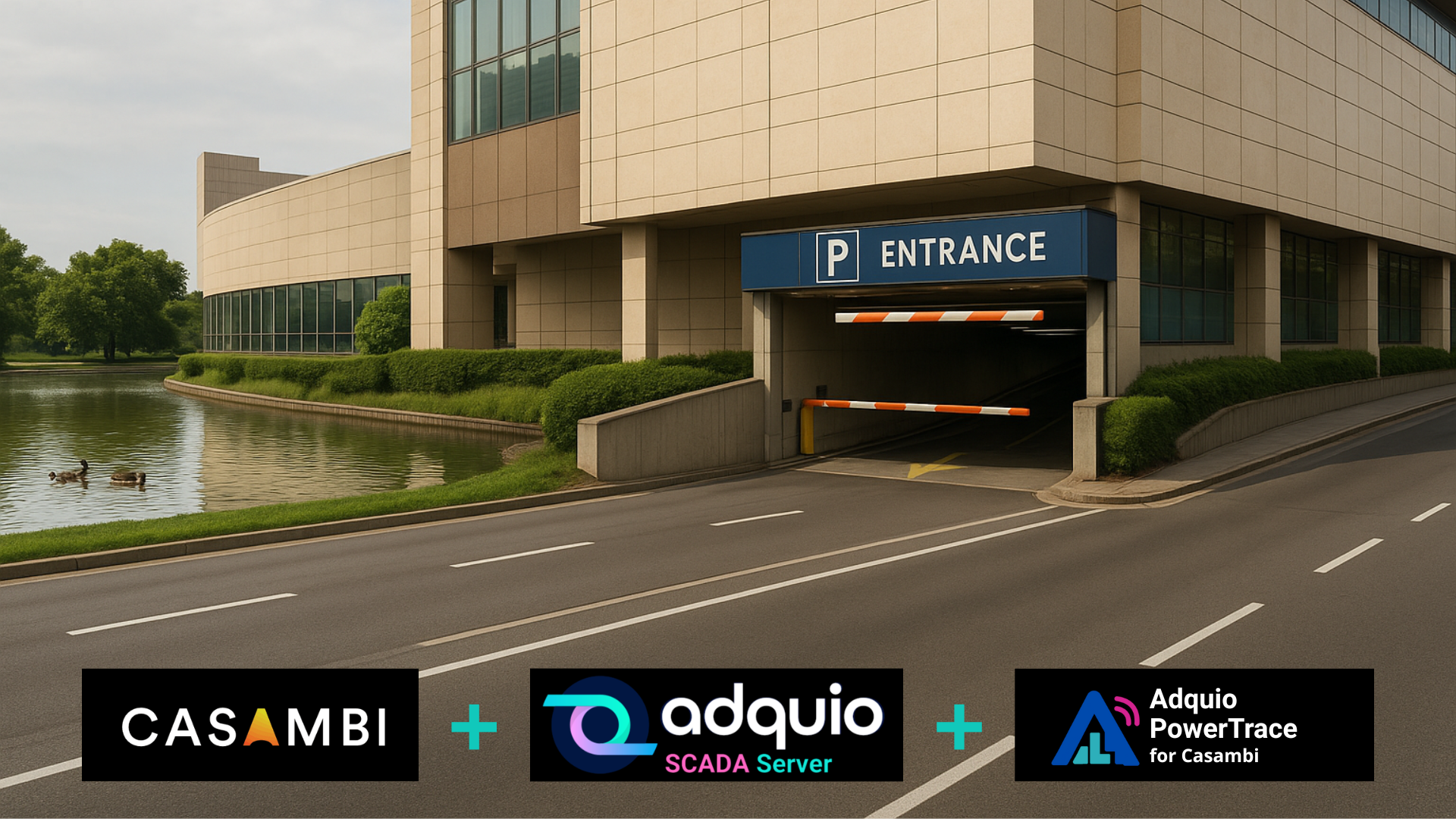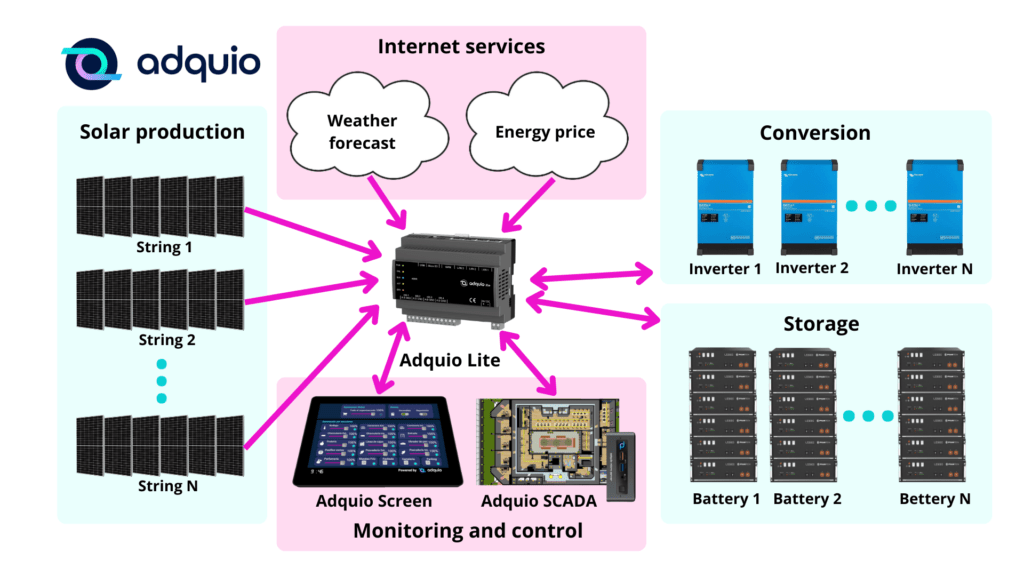
Currently, energy prices are fluctuating more than ever. On the one hand, the transition to renewable energies, and on the other, geopolitical situations have led us to this situation.
At Adquio we are fully committed to renewable energies, and for this reason, we make this sector one of the important points on which we focus.
In this post, we explain in detail how we do it and what advantages we offer you. Let’s get started:
Solar production monitoring.
Each installation has different conditions, it can have one or several strings (groupings of solar panels). The monitoring of this production can be done in two ways: Obtaining the information from the battery charger, if it is integrable. Or by means of a shunt placed at the output of each string. In either case, Adquio can receive at any time the voltage we are obtaining, as well as the power in Watts of each string. This information will be of great interest in order to manage historical data, display it in real time and, above all, operate with it in subsequent steps.
Conversion
This is one of the most relevant parts of any solar system, since it is the one that converts direct current to alternating current, usable in a standardized way for the consumption of a home or industry. This conversion can be done from the solar panels, from the batteries or from both simultaneously, all depending on the consumption demanded by the alternating electrical grid outgoing from the inverter.
In this part, Adquio integrates with the inverters via Modbus protocol with the brands that allow it, or externally for all the others. Simply, the consumption of direct current at its input is counted, and the demanded production of alternating current at its output is also measured.
As in the previous case, all this information is displayed on the local screen, an SCADA and is also stored in the cloud for further studies.
Storage
Whether to store energy is one of the most important decisions to be made when designing a solar system.
In many cases, it is preferred to dispense with the use of batteries. This makes the installation much cheaper, but has several negative points:
- Dependence on the electric company at all times. As they are on-grid inverters, they need the presence of external power to be able to do their job. Therefore, even if the user has panels, if the external power supply is interrupted, his installation is not supplied.
- Consumption at times of low solar production. If we look at residential consumption, this occurs first thing in the morning, midday and late in the afternoon, corresponding to breakfast, lunch at home and dinner. Solar panels usually do not help us in the first and last case, since, in the morning, they are not yet producing or their production is very low. At noon, yes. In this case, 100% solar production is used, unfortunately eating at home is a ‘luxury’ that few families can afford. And finally, in the late afternoon, panels production is again low or non-existent. Therefore, we see that consumption and solar production schedules are very poorly synchronized, resulting in high grid consumption, higher cost and longer payback time for solar installations.
Let’s see now the same case above, but using batteries, what benefits do we get?
- This time, all the energy produced by the panels is stored in the batteries. The installation can be expensive, but it is even profitable, compensating this expense with the installation of fewer solar panels.
- We will now be working with an off-grid inverter, which allows us to be independent of the external power grid. If the external network fails, our installation will continue to supply our consumption.
- Now, the batteries act as intermediate storage, and allow us that the consumption of our home or business does not have to coincide with solar production. If we look at the example above, now in the morning and at night, consumption is from the batteries. This system will only connect to the external grid if there is no solar production, and the batteries are depleted or both simultaneously. As you can see, in this case, consumption from the outside is minimized.
In this second case, when using batteries, Adquio performs several important tasks. Let’s see which ones:
- Monitor the status of the batteries, their balance, their charge, and the energy available in the batteries.
- Decide at what time it is interesting to charge the batteries from the grid in the event of low solar radiation.
- Detect when we have solar surplus, when the batteries are fully charged and we have good radiation. In this case, Adquio can redirect the consumption to heat the pool water, charge the electric car or regulate an aerothermal system, among many others.
- Enable control of the entire system through local displays or general SCADA control systems.
Internet services.
Adquio is the only controller that can use internet services for your benefit:
- In this example, we use a link to the weather forecast so that the system can decide whether it is necessary to charge batteries during a period of low energy cost.
- Obtain the prediction of the cost of energy for the next day, and as we saw in the previous point, charge the batteries only at times of low energy cost.
Monitoring and control.
As we have seen in all the previous points, the Adquio ecosystem offers you a complete range of systems for monitoring, control and study of your information.
- For local control, you have at your disposal our screens that will show you in real time all the information of your installation. You will be able to interact with your solar system, but also with your lighting, air conditioning, etc.
- If you want building-wide control, you can use our Adquio SCADA, which will give you a complete overview of all relevant data from your solar and other building systems.
- And finally, with Adquio Cloud you can store all the information of your installation and make any kind of graph or report of it in a simple way and integrating all your systems.
Conclusion
As you can see, Adquio allows you to control all the key points of your solar installations, and not only this, but it helps you to optimize their operation, and contributes to your cost savings. Contact us for more information.




